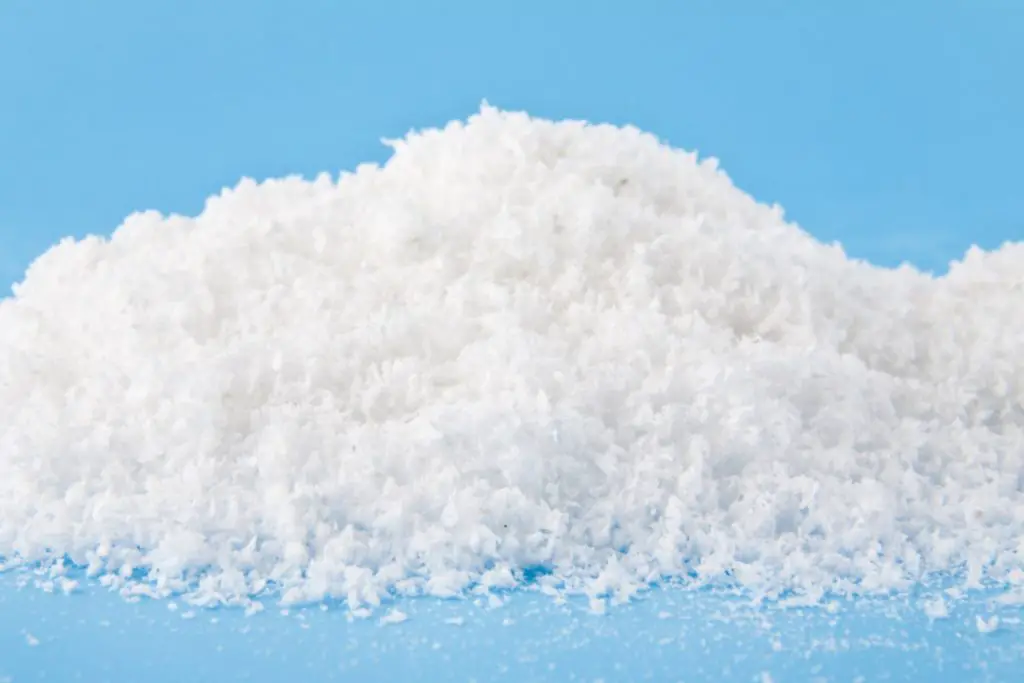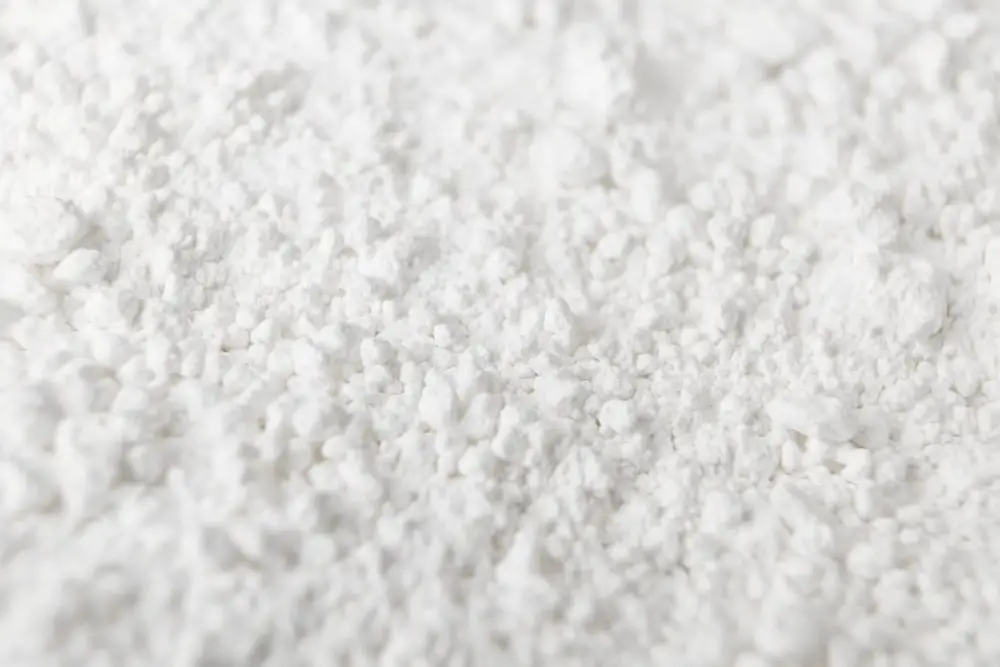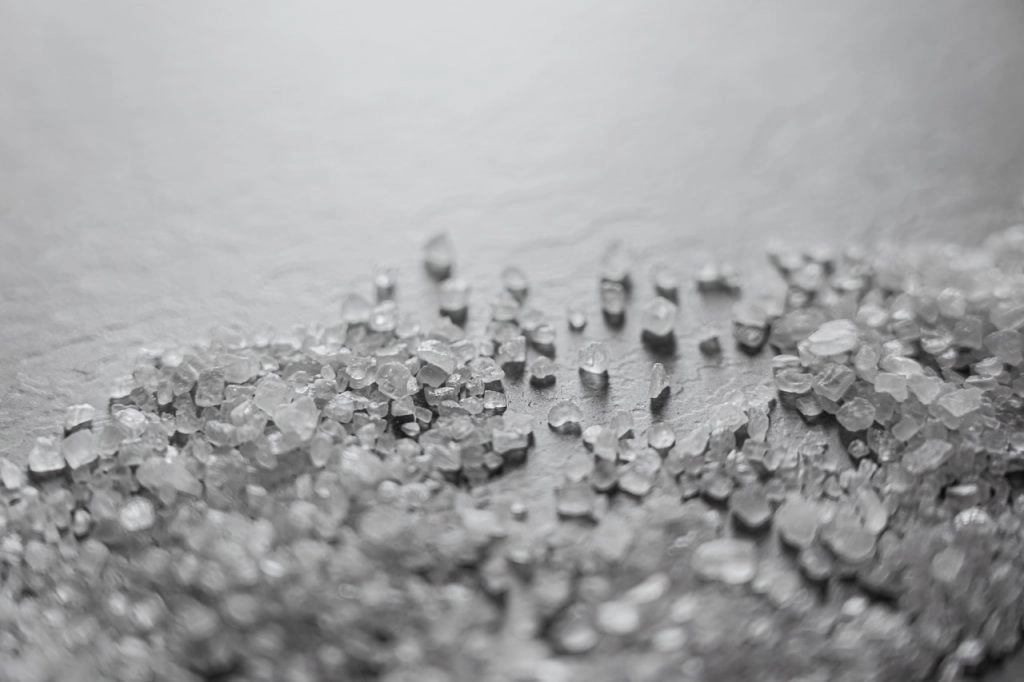Sorbic acid is getting a lot of attention these days in the skincare world. The truth is, though this ingredient has been used in popular cosmetics since the 1960s.
This post may contain affiliate links. Read the full disclosure here
It is vitally important to understand the ingredients that go into your products. This is especially true for those who deal with skin allergies. Researching cosmetic ingredients is a great way to keep up with which products would or would not be a good fit for you.
Let’s take a look at what sorbic acid is and why it’s in some of your favorite products.
What Is Sorbic Acid?
Sorbic acid or, 2,4-hexadienoic acid, is naturally in certain berries. Although it is considered a natural ingredient, most of the sorbic acid today is created synthetically.
This ingredient was originally used most often as a food preservative. It inhibits the growth of mold also has antimicrobial properties. Sorbic acid is often added to cosmetics and skincare products as a preservative. It is often used as an alternative to parabens.
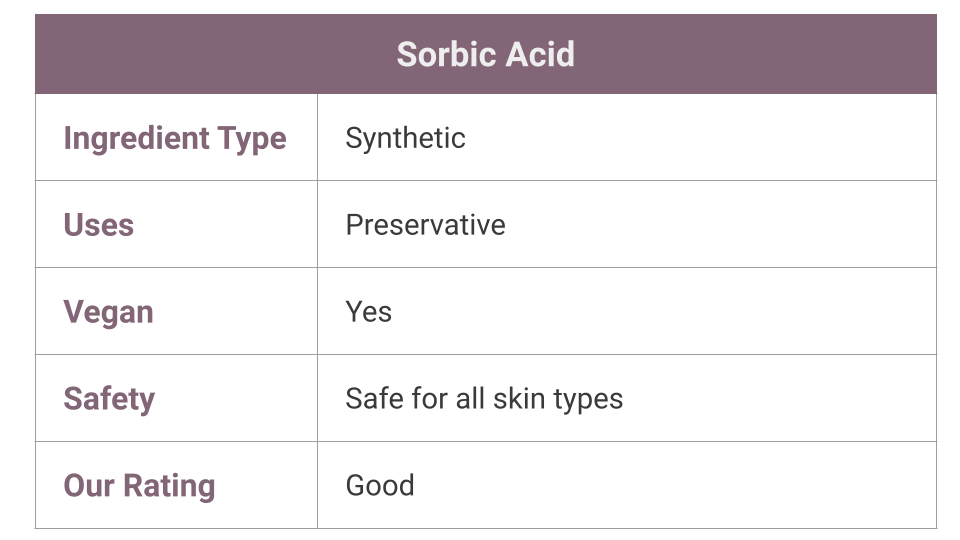
Parabens have gained a lot of negative attention in the last few decades. They are used as a preservative in cosmetics to stop the growth of mold and bacteria. The downside is that parabens are scientifically proven to have negative effects on hormones in humans. Finding paraben alternatives has become an important goal of cosmetic companies.
Sorbic acid has proven to be a great alternative to harmful parabens. Because most cosmetics are biodegradable, preservatives must be added. These preservatives will inhibit the formation and growth of harmful microorganisms.
Sorbic Acid Benefits for Skin
Sorbic acid is not generally added to cosmetics or skincare for direct skin benefits. But sorbic acid is added to these products as a preservative. Preservatives in skincare products will stop the growth of mold and bacteria. It doesn’t directly benefit the skin, but it does increase the shelf life and safety of cosmetics.
When cosmetics and skincare products are not preserved properly, it can result in the spread of dangerous microorganisms to the skin. This can create health care risks for individuals.
Common Uses for Sorbic Acid
Sorbic acid is most often used in skincare products that contain a high level of biodegradable ingredients. This could include all-natural products as well as products featuring food compounds.
Many skincare products today tap into the power of plants to bring added beauty benefits. Products featuring citrus, berries, aloe vera, and other plant-based ingredients, highly benefit from the addition of sorbic acid.
These products have a high danger of contamination from mold and bacteria. Sorbic acid helps to cut down on this risk.
Does Sorbic Acid Clog Pores?
The comedogenic rating is a rating system used by cosmetic companies to determine how likely it is that an ingredient will clog your pores. This rating system is not always entirely accurate due to the vast difference between skin reactions. However, it can be used as a basic guide to help you determine if a product would be a good fit or not.
Sorbic acid is not considered a comedogenic ingredient. This means that it is not known to cause clogs in pores. In fact, sorbic acid helps to kill microorganisms that are often the cause of clogged pores.
Because Sorbic acid is used as a preservative, it has not been given a comedogenic rating.
Is Sorbic Acid Safe for Skin?
Sorbic acid has been deemed by the FDA to be safe for use in both food and cosmetic products. This ingredient has not been linked to cancer or other health-altering problems. The Cosmetic Ingredient Review Expert Panel also considers sorbic acid safe to use in cosmetics based on present practices and concentrations.
In some cases, individuals will show an allergic reaction to sorbic acid. The most common symptom of an allergic reaction would be mild itching on areas of the skin exposed to sorbic acid.
It is recommended that people suffering from eczema should avoid using this product. In some cases, it can cause irritation to already sensitive skin.
Although reactions are rare, if you do notice your skin reacting, you should rinse the affected area with water. The use of anti-itch cream can also be helpful.
In extremely rare cases, some individuals may experience a toxic reaction to sorbic acid. This is most often seen when the substance is being handled in a raw form. This would not be the case once it has been added to a skincare product.
Sorbic Acid vs. Potassium Sorbate
Sorbic acid and potassium sorbate are often talked about together. So how do these two ingredients compare?
Potassium sorbate is synthetically produced using sorbic acid and potassium hydroxide. On the other hand, sorbic acid occurs naturally in berries.
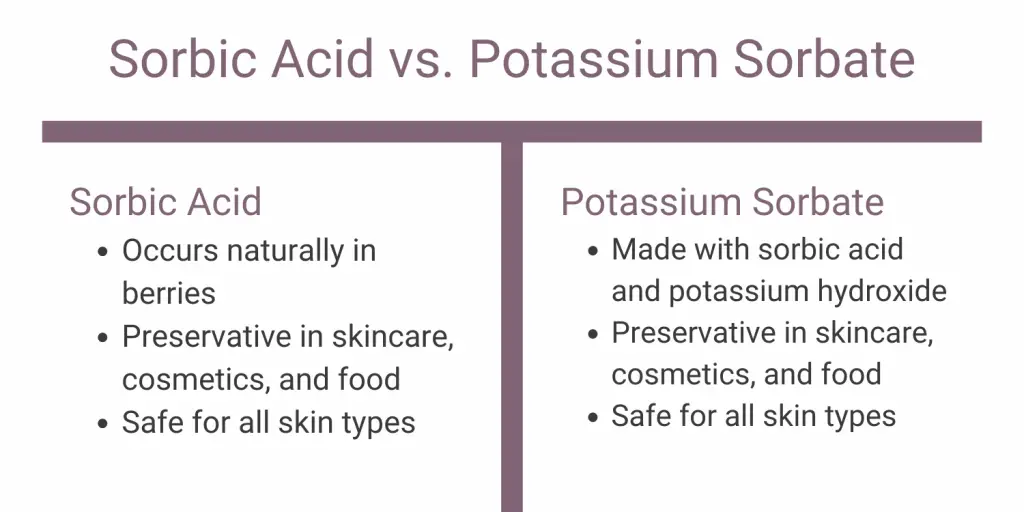
Both are useful preservatives for food, skincare, and cosmetics products. Sorbic acid and potassium sorbate are both considered safe to use in skincare products, non-toxic, and fully degradable.
Frequently Asked Questions
Find answers to some of the most commonly asked questions about sorbic acid.
Other Considerations
Many consumers find that simply understanding the ingredients which go into their products is not enough, though. If you feel that the production of your products is important as well, then you will also want to research the ethics and sustainability of the products you purchase.
This is vitally important as it pertains to cosmetics. In the past, there has been a great deal of unethical testing on animals as well as unsustainable manufacturing processes which can be harmful to the environment. Researching these factors can help you make purchasing decisions you can be proud of.
Conclusion
When researching skincare products, it is important to look for ingredients that provide advantages and at the same time do not carry risks of allergic reaction or health risks.
As cosmetic companies improve their research and technology, they are finding more ways to tap into the power of naturally occurring substances, such as sorbic acid, to improve products.
Look for products that use natural ingredients like sorbic acid, rather than dangerous substances such as parabens. It is also important to understand your personal skin reactions so that you can know which products will be safe for you and which will not.
Related Ingredients You Might Find Interesting:

